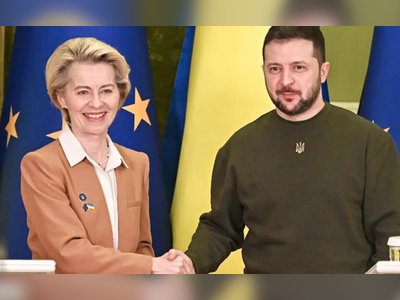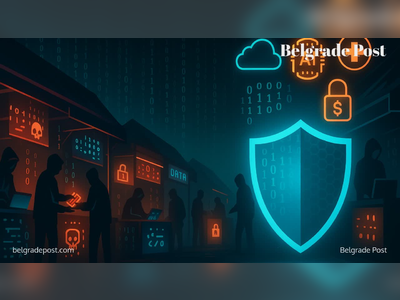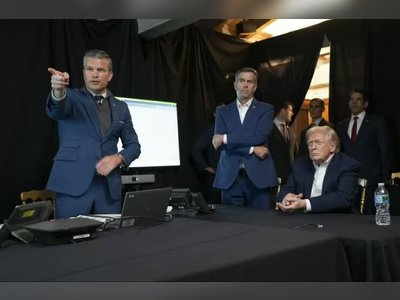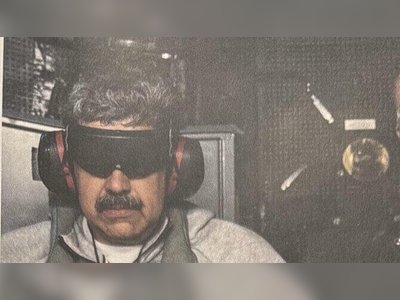
Serbian Consumers Organize Boycott Against Food Retailers Amid Rising Prices
Consumer association 'Efektiva' calls for a seven-day boycott of major retailers in response to soaring food prices.
In Serbia, consumers are expressing their discontent over soaring food prices by initiating a boycott of major retail chains.
The consumer protection association "Efektiva" has called upon citizens to participate in sequential boycotts targeting large retail chains, beginning with Belgian-owned "Delez" and its stores "Maksi" and "Shop and Go." The boycotts are slated to last for seven days, and the initiative aims to address what consumers perceive as unjustifiably high prices in Serbian supermarkets.
The decision to organize the boycott followed a survey conducted by "Efektiva," which received approximately 20,000 votes to determine the priorities of the targeted retailers.
This is not the association's first foray into boycotts; consumers previously participated in two such actions earlier in the year: the first one occurred on January 31, and the second lasted five days from February 10 to 14.
In response to the announced boycott, "Delez" released a statement detailing the structure of product pricing.
The company emphasized that it has been the subject of misleading information, leading to public confusion regarding pricing margins, income, and profits.
"Nepravedno, naša industrija i mi kao kompanija smo izdvojeni, stigmatizovani i okrivljeni za visoke cene," the statement noted, while acknowledging the public's discontent over price increases.
According to "Delez," 94% of the average retail price goes to third parties: 59% to suppliers of goods, 14% to the government for value-added tax (VAT), 10% for employee wages, and 11% for various operational costs, leaving only 6% as profit for the company.
The retailer highlighted that it had reduced the regular prices of 732 items since the beginning of the year, increased its private label offerings to 2,700 items—priced, on average, 20% lower than branded products—and added 1,274 items to its promotional pricing list compared to the same period last year.
Inspired by similar boycotting efforts in Croatia against high prices, Serbian consumers have rallied together.
A boycott in Croatia, which took place on January 24 at the behest of the Facebook group "Halo inspektore," succeeded in decreasing the total number of receipts issued in retail by 44% compared to the previous week, indicating a significant consumer response.
In Croatia, government officials reacted favorably, with Prime Minister Andrej Plenković acknowledging the boycott as a valuable message from citizens, leading to the expansion of a price control list to include 70 products.
In response, the Croatian chain "Kaufland" reduced prices on over 1,800 items while the largest supermarket chain "Konzum" cut prices on 250 locally produced products, investing an additional one million euros into this price reduction effort.
Although numerous boycotts have been organized in Croatia, participation has been waning, with a recent boycott showing only a 3% decrease in receipts from the previous week, reflecting potential consumer fatigue.
Experts in Serbia view the consumer-led boycott as a justified action but emphasize that battling high prices requires a synergistic approach involving both consumer protest and proactive regulatory measures by government authorities.
Economist Saša Đogović noted that market forces alone cannot regulate prices effectively in cases where retailers violate basic market principles, such as setting prices solely based on supply and demand.
He suggested that regular market analysis and transparency from governmental bodies are essential to maintain fair pricing practices.
Consumer advocates like Petar Bogosavljević express that the boycott sends a clear message to both retailers and the government about the unsustainable nature of current pricing.
They argue that ongoing dialogue and effective intervention are necessary to create a balanced market, ensuring that prices remain fair and accessible for consumers while discouraging cartel-like behavior among retailers.
The consumer protection association "Efektiva" has called upon citizens to participate in sequential boycotts targeting large retail chains, beginning with Belgian-owned "Delez" and its stores "Maksi" and "Shop and Go." The boycotts are slated to last for seven days, and the initiative aims to address what consumers perceive as unjustifiably high prices in Serbian supermarkets.
The decision to organize the boycott followed a survey conducted by "Efektiva," which received approximately 20,000 votes to determine the priorities of the targeted retailers.
This is not the association's first foray into boycotts; consumers previously participated in two such actions earlier in the year: the first one occurred on January 31, and the second lasted five days from February 10 to 14.
In response to the announced boycott, "Delez" released a statement detailing the structure of product pricing.
The company emphasized that it has been the subject of misleading information, leading to public confusion regarding pricing margins, income, and profits.
"Nepravedno, naša industrija i mi kao kompanija smo izdvojeni, stigmatizovani i okrivljeni za visoke cene," the statement noted, while acknowledging the public's discontent over price increases.
According to "Delez," 94% of the average retail price goes to third parties: 59% to suppliers of goods, 14% to the government for value-added tax (VAT), 10% for employee wages, and 11% for various operational costs, leaving only 6% as profit for the company.
The retailer highlighted that it had reduced the regular prices of 732 items since the beginning of the year, increased its private label offerings to 2,700 items—priced, on average, 20% lower than branded products—and added 1,274 items to its promotional pricing list compared to the same period last year.
Inspired by similar boycotting efforts in Croatia against high prices, Serbian consumers have rallied together.
A boycott in Croatia, which took place on January 24 at the behest of the Facebook group "Halo inspektore," succeeded in decreasing the total number of receipts issued in retail by 44% compared to the previous week, indicating a significant consumer response.
In Croatia, government officials reacted favorably, with Prime Minister Andrej Plenković acknowledging the boycott as a valuable message from citizens, leading to the expansion of a price control list to include 70 products.
In response, the Croatian chain "Kaufland" reduced prices on over 1,800 items while the largest supermarket chain "Konzum" cut prices on 250 locally produced products, investing an additional one million euros into this price reduction effort.
Although numerous boycotts have been organized in Croatia, participation has been waning, with a recent boycott showing only a 3% decrease in receipts from the previous week, reflecting potential consumer fatigue.
Experts in Serbia view the consumer-led boycott as a justified action but emphasize that battling high prices requires a synergistic approach involving both consumer protest and proactive regulatory measures by government authorities.
Economist Saša Đogović noted that market forces alone cannot regulate prices effectively in cases where retailers violate basic market principles, such as setting prices solely based on supply and demand.
He suggested that regular market analysis and transparency from governmental bodies are essential to maintain fair pricing practices.
Consumer advocates like Petar Bogosavljević express that the boycott sends a clear message to both retailers and the government about the unsustainable nature of current pricing.
They argue that ongoing dialogue and effective intervention are necessary to create a balanced market, ensuring that prices remain fair and accessible for consumers while discouraging cartel-like behavior among retailers.
AI Disclaimer: An advanced artificial intelligence (AI) system generated the content of this page on its own. This innovative technology conducts extensive research from a variety of reliable sources, performs rigorous fact-checking and verification, cleans up and balances biased or manipulated content, and presents a minimal factual summary that is just enough yet essential for you to function as an informed and educated citizen. Please keep in mind, however, that this system is an evolving technology, and as a result, the article may contain accidental inaccuracies or errors. We urge you to help us improve our site by reporting any inaccuracies you find using the "Contact Us" link at the bottom of this page. Your helpful feedback helps us improve our system and deliver more precise content. When you find an article of interest here, please look for the full and extensive coverage of this topic in traditional news sources, as they are written by professional journalists that we try to support, not replace. We appreciate your understanding and assistance.











